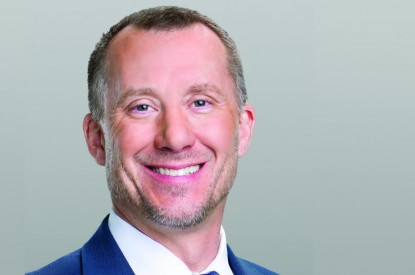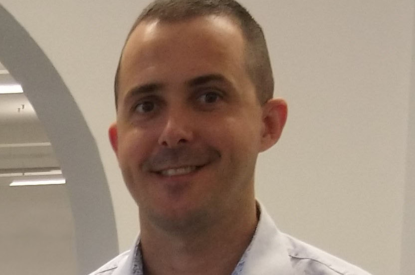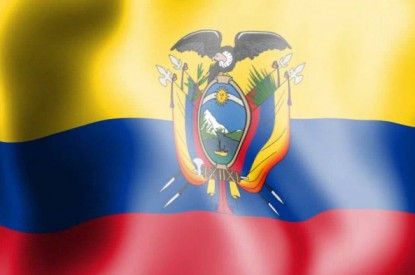Pulse
US – Crisis and Emergency Management
By Lewis - 14 May 2018
AG Burnett, Partner at Gaming & Administrative Law Group, McDonald Carano, shares his regulatory experience serving as the Chairman of the Nevada Gaming Control Board during the events of October 1, 2017 in Las Vegas.
On the night of Sunday, October 1, 2017, a gunman opened fire on the crowd at the Route 91 Harvest music festival in Las Vegas. The gunman was in a room on the 32nd floor of the Mandalay Bay hotel and casino on the south end of the Strip. Mandalay Bay has 43 stories, 3,309 hotel rooms, and a 135,000-square foot casino. The Route 91 Harvest Festival is a country music gathering that brings headline acts to Las Vegas. Thousands of people attend the yearly gathering, which is in a lot just north of, and directly across the street to Mandalay Bay.
The shooting started without warning, and created chaos on the ground below. Victims who thought the shooter or shooters were on the ground level with them ducked and laid down. Little did they know the shooter was above them. As gunfire rained down upon the crowd, chaos ensued.
In total, 58 people lost their lives and 851 people were injured.
In the chaotic moments during and after the shooting, a multitude of law enforcement personnel descended on the area. Included among them were staff from the Enforcement Division of the Nevada Gaming Control Board (GCB or Board). The Enforcement Division is the law enforcement arm of the Board. It is comprised of peace officers who are certified and trained in the exact same fashion as police. In fact, many are former police officers.
They, along with the other local, state and federal law enforcement authorities did the best they could to secure the scene and attend to the injured. In the hours and days that followed, they investigated the shooter to determine the cause of what has been deemed the deadliest mass shooting committed by one person to have ever taken place in the United States.
This article addresses the experiences of the GCB during and after that tragedy. I was the Chairman of the Board at the time. It is hoped that this article may aid other gaming regulators by detailing what they might experience and what they could do in anticipation of, and in response to, such a terrible event.
Pre-Emergency Measures
Las Vegas is a major international tourism destination. Millions of visitors come to the city every year, and especially the Strip; while this is a great benefit to the local and state economies, it can also mean that the location becomes a targe
For years, there have been working groups and roundtables held within Nevada, and specifically in Las Vegas, to prepare all stakeholders for handling of an emergency. Much of this work began prior to September 11, 2001, but of course most of the work and its intensity increased exponentially after that. To realise that your geographic location is a target is truly a motivator. Many local, federal, and state agencies took part in sessions designed to identify potential emergencies and how to handle them. The interesting part about these meetings was that other stakeholders were there as well: the gaming industry.
In a city like Las Vegas, where the gaming industry is the focus of security concerns, it was incredibly important to have their seat at the table and to allow them to weigh in and comment on issues and potential risk-alleviation measures.
Unfortunately, the list of dangers is not short. Among them are natural disasters, terrorist acts, shooting scenarios, pandemics, and civil unrest. In areas where there are large groups of people confined within relatively small spaces, should any of these horrible events occur, states and their regulators should be prepared.
For years as Chairman I would receive regular updates regarding law enforcement task force briefings that the Enforcement Division had attended. The reports back were always indicative of the general need in the city to plan for and alleviate the risk of an event. There was much planning and coordination between all the agencies involved in those task force meetings. Plans were developed for a multitude of events. I was impressed that there was such a high level of cooperation and planning by all the stakeholders.
Further, there were several instances that increased awareness and led to more attention being paid to crises that could occur.
In Las Vegas, there had been instances where large crowds have contributed to chaotic events that stand the chance of spiralling out of control. The popularity of nightclubs and day clubs on casino properties began growing significantly after 2012. Large crowds tucked into small spaces were recipes for events like shootings, fights, and riots. When those events occurred, the GCB’s Enforcement Division would assist the primary law enforcement agency, typically Metro, in handling the scene and the investigation afterward.
As regulators, the GCB took a strong position on patron safety in such locations, levying disciplinary actions against operators. Subsequently, in the 2015 legislative session, both the GCB and the Nevada Gaming Commission (NGC) worked with nightclub operators and gaming licensees to craft legislation that enabled the gaming regulators to take a further step: Light regulation of the nightclub operators themselves. After the legislation passed, the GCB and NGC enacted regulatory provisions that required certain nightclub operators, their employees, and their promoters to be registered with, and monitored by, the GCB.
Much like the task forces regarding safety in Clark County, there were multiple hearings, workshops, and stakeholder meetings held to address safety in nightclubs and day clubs. These meetings not only included law enforcement, but also included the nightclub operators and gaming licensees. The dialogue was robust and beneficial to all.
Nevada does have a statute that speaks to emergency response plans. NRS 463.790, promulgated in 2003, requires resort hotels to create and maintain such plans. The plans must be filed with local fire department and local law enforcement agencies wherein the resort is located. Further, the plans must be filed with Nevada’s Division of Emergency Management of the Department of Public Safety.
The emergency response plans, per NRS 463.790 (2)(a)-(j), must include:
(a) A drawing or map of the layout of all areas within the building or buildings and grounds that constitute a part of the resort hotel and its support systems and a brief description of the purpose or use for each area;
(b) A drawing or description of the internal and external access routes;
(c) The location and inventory of emergency response equipment and resources;
(d) The location of any unusually hazardous substances;
(e) The name and telephone number of the emergency response coordinator for the resort hotel;
(f) The location of one or more site emergency response command posts;
(g) A description of any special equipment needed to respond to an emergency at the resort hotel;
(h) An evacuation plan;
(i) A description of any public health or safety hazards present on the site; and
(j) Any other information requested by a local fire department or local law enforcement agency whose jurisdiction includes the area in which the resort hotel is located or by the Division of Emergency Management.
Per statute, these plans are confidential and must be securely maintained by the department, agency and state Division with whom they are filed.
Compared to first responders such as local fire and police, one would not assume gaming regulators would play an extensive part. Still, it is important that regulatory staff be engaged with the first responders so that if needed the regulators can help in a moment’s notice. The task force briefings were certainly helpful in that regard, with merely the enhanced communication being of great benefit to all.
It goes without saying, however, that when an emergency event occurs there is no amount of planning that can address the chaos and confusion that is bound to erupt. As Mike Tyson famously said, “Everybody has a plan until they get punched in the mouth.”
The Fog of War
No one can truly anticipate a natural disaster or a terrorist act. Further, no one can anticipate or have foreknowledge of an event like the Route 91 shooting. There were no signs or warning signals that gave the Board a clue that this could happen. Task forces wisely assume that is going to be the case prior to an event, so all that can be done is develop the ability to communicate disasters and coordinate efforts once they occur. My notification was a series of texts and phone calls, and then of course the national media.
The Enforcement Division communicates constantly with Clark County law enforcement authorities, so when the incident occurred the Division was fully aware of the situation. Members of the staff were sent to the scene to see if they could assist.
The Enforcement Division is comprised of statutorily-defined peace officers that are given full powers of arrest. They are trained officers who, in many cases, are former police officers themselves. This was crucial for the Board during the event, because these peace officers knew what to do and became an instant part of the police community in Las Vegas responding to the attack. The “triage” involved goes something like this: Determine if a gaming property is involved; determine if Enforcement Staff are present and are engaged in the event, and send staff to the location as soon as possible.
Assuming the event occurs at a gaming location, the primary responsibility of the gaming enforcement personnel should be to assist regular law enforcement. At such a point, they may have to rely on their previous years of law enforcement. They may have to assist in crowd control, location security, evacuation of victims, medical triage, and potentially even assisting on eliminating the threat.
A secondary responsibility in the face of such an event is to ensure the gaming areas are secure. If the event is something like a fire on property or a power outage, security staff from the hotel can work with gaming enforcement staff to alleviate any issues with visitor ingress or egress and lockdown of gaming areas and machines or tables if need be.
Mandalay Bay presented some confusion, because it was the location where the shooter was, but not where the victims were. The actual gaming premises were not an issue, but the hotel and location across the street were. When the casino floor is the actual issue, the first to respond will likely be the casino’s security staff. Therefore, the casino should have adequate training in place for those officers so that they can respond immediately and efficiently. In Nevada and in most major casino locations throughout the world, there are competent trained staff well-equipped to handle an emergency, but nothing can replace training and communication with law enforcement in the jurisdiction where the casino resides.
It is that communication that enables a swift response in the face of chaos.
Lastly, certain Enforcement Division officers were dispatched throughout gaming locations in Nevada to simply walk the casino floors and monitor things. One of the primary statutory duties of the GCB is to ensure the safety of the public. It was therefore to monitor various casino floors even though we believed the event was isolated and there were no threats of copycats.
Investigation
After the Mandalay Bay shooting, the Enforcement Division was activated to assist the investigating law enforcement agencies that had primary jurisdiction: Metro and the FBI. Those two agencies moved immediately to begin a thorough investigation that has been well-publicised and documented in the media. Enforcement Division officers were directed to assist those agencies with whatever they needed, thus furthering the cooperative efforts detailed in the task force meetings that had been held over the years.
Since the shooter had booked a room at, and was in a gaming property, the Board worked with the licensee to get Metro and the FBI everything they needed. At the same time, the Enforcement Division conducted an investigation of its own into the shooter. In such a case, the regulatory agency, along with the licensee, may have records on a shooter or assailant that might be helpful to law enforcement.
Casino records, be they audit, hotel information, or even patron dispute information might be helpful even if irrelevant to the particular event. For example, casinos have databases and patron information that may include spending habits and even dining preferences or room requests that might go toward profiling an individual.
Casinos are required to have such high levels of surveillance that law enforcement can be assisted even if the event occurs off-property.
On Tuesday, September 6, 2011, a gunman with an AK-47 killed four people, and then himself, at an IHOP restaurant in Carson City, Nevada. The restaurant was located directly across the street from a licensed gaming property. Immediately after the shooting occurred, property staff and GCB Enforcement agents were able to use outside surveillance cameras at the property to gain video of the entire event. This greatly helped law enforcement investigating the crime.
If the event had occurred inside the casino, Board would have worked with any other agencies to investigate the crime or event. Board agents have access to everything the casino has, including surveillance tapes. The fact that casinos have more surveillance that almost any other business is of comfort to all involved; events can be dissected and used for criminal proceedings, for example.
Post-Emergency Emergencies
Perhaps the strangest part of the October 2017 tragedy was the mainstream and social media coverage of the event. The media descended upon Las Vegas, and their reporting was swift and accurate. Social media, however, unleashed an onslaught of conspiracy theories and coverage that was not accurate.
While the Board was quietly working with law enforcement to gain as much information on the event as possible, phone lines became busy with calls on the shooting. Social media reports and statements were not a concern until the media began picking up on some of the proposed conspiracy theories that began to swirl. It was at this point that the GCB decided to quell some of the commentary by providing the media with information that could be publicly released and that might clarify some of the rumours.
Gaming licensees can hire outside PR or damage control firms to assist them in limiting the amount of rumor and conspiracy speculation that swirls after such an event. The regulators, if they speak, must do so not on behalf of the licensee, but of the state.
So, while it is not a customary job of the regulator to speak to the press on events of this nature, discretion should be used in doing so. The state of Nevada depends heavily on tourism, and with several thousand gaming licensees’ business at stake, it is sometimes reassuring to them, the state, and the public that the regulator is calm and discussing points of fact, not speculation.
Rumours that harm the state or that serve to damage law enforcement investigations can sometimes be dealt with by a few facts released to the media.
Concluding Remarks
Every regulator is working in a jurisdiction where there may be some kind of crisis, or emergency. States must recognise that fact, and work with all responders, not just “first responders,” but also “potential responders,” including gaming regulators, is crucial. There should be a set of defined roles, along with communication lines set up; further, regular roundtable briefings and emergency preparedness exercises can be conducted.
The regulators should have a part, whether it is to assist first responders when their manpower numbers are overwhelmed, or to potentially be the first responders themselves if an event occurs on casino’s premises. No emergency or crisis can be 100 per cent accurately planned for, but these things go a long way toward accomplishing the state’s goals of not only protecting its own citizens, but to protect tourists and casino visitors.




